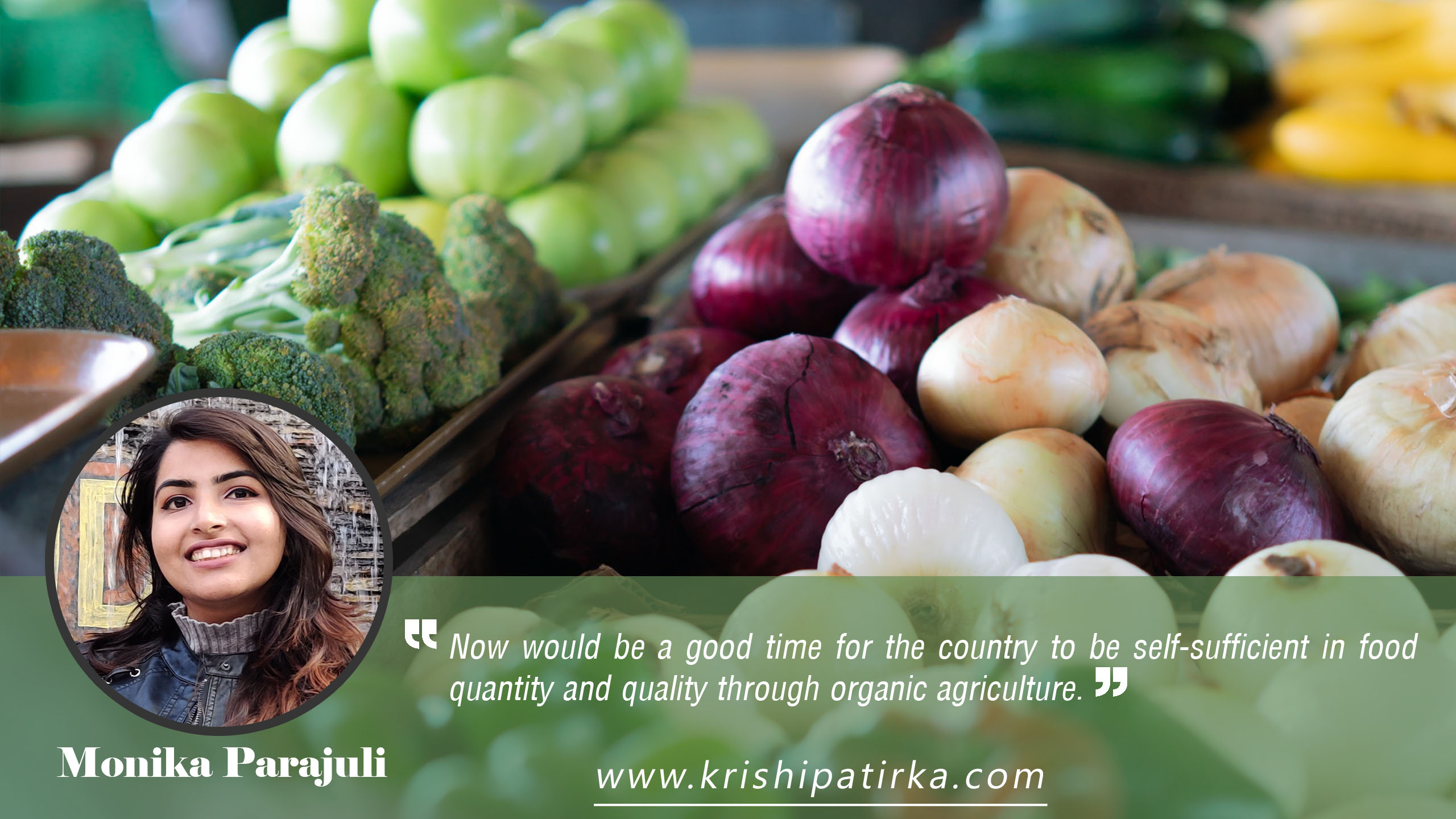
Nepal is an agricultural country where 66% of people are directly engaged in farming. However, only around 20% of the food produced in Nepal is organic.
Organic agriculture is a production system that relies on ecological processes and techniques adapted to local conditions, rather than the use of external inputs as chemical fertilizers and pesticides with adverse effects.
In a country like Nepal, where most of the people are slowly moving towards modernization through artificial and technical innovation, doing organic farming by grasping the indigenous knowledge is itself a challenge.
In the current situation of the CoVID-19 pandemic, the food production and supply is affected throughout the world. Nepal Government has enforced lockdown throughout the country since 24th March, 2020. In the first week of the lockdown, import of cereals stood at 13,343 tons which has nearly doubled to 24,365 tons as of the eighth week of the lockdown. A total of 82,101 Mt of food goods were imported since the lockdown as of April 22nd.
In a country like Nepal, where we rely heavily on imports, a food crisis is bound to happen. Disruptions in the supply of farming inputs like fertilizers are certain to impact food production. As the number of infected cases have been increasing, the government has been enforcing and extending the lockdown more efficiently. Also due to the monitoring in the borders import of food is being much difficult. In this condition, it would be wise for Nepal to move towards food self-sufficiency i.e, when a country has a capacity to meet food needs from its domestic production through various agriculture practices.
Most of the fertilizers and agricultural inputs are imported from India, China, Turkey and Egypt. With the commercialization of agriculture, the demand for inorganic fertilizers is highly increasing but the supply is still not met. In the current situation, the demand for agro-inputs cannot be fulfilled and the direct influence will be on the farmers and the food market of the country. The majority of farmers in our country are unaware of the proper doses, safe application procedures and the waiting period of the chemical fertilizers. This haphazard use of agro-chemicals has led to decrement in the food quality and also has influenced the human health causing to weaken our immune system. It also has a direct influence on soil degradation and disruption of the ecosystem.
With the breakdown in the supply chain, and an increasing reliance on imports, prices of daily essentials have already begun to rise in the market. In the meantime due to the lack of accessibility of imported foods, unlike normal days, people have started realizing the importance of local products. Youths can be seen promoting local food items and local seeds for agriculture. The lockdown has allowed farmers to sell their product directly in the villages and residential areas, without any intermediaries from middle man and cooperatives and through internet platforms as well so that farmers make the most out of their products and customers receive fresh supplies. So, now would be a good time for the country to be self-sufficient in food quantity and quality through organic agriculture.
If the farmers are supported and motivated by the government, organic agriculture can fluster easily in Nepal. The migrants have returned to the country so there is a guarantee for sufficient labour management as well. Organic farming influences our health to be better and it also helps maintain the ecological balance in the environment. Strong government policies, guarantee on the price of organic products, sufficient organic technology and awareness about the benefit of organic food is must for the organic agriculture to flourish in Nepal in this time of crisis.
Furthermore, subsistence farming in the rural areas and rooftop farming in the cities is also being promoted. Allocation of more budget in agriculture, awareness and training to local people and farmers, market development with proper plans and policies will assure the food self-sufficiency of the country in coming days.
Writer : student of Institue of Agriculture and Animal Science, Paklihawa, Rupandehi.









